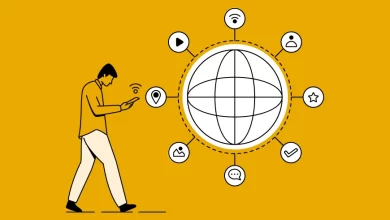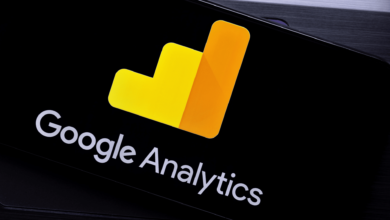How AI and data analytics are transforming guest services

In 2015, Henn na Hotel in Japan caught worldwide attention. What was so special about this place? Well, it’s not every day that you encounter a lobby manned by multilingual robots and mechanical dinosaurs ready to be at your service 24/7.
Even though the robotic workforce was initially designed for cost-cutting, Henn na Hotel utilized new technology in guest services to transform hospitality experiences. At the heart of this transformation? The guest experience. But how exactly are these advanced technologies bringing about change?
Why AI and Data Analytics?
The convenience of a smartphone has conditioned us to crave instant gratification. A quick tap here and a swipe there—guests today want prompt solutions tailored to their unique requirements. AI and data analytics are the perfect tools to meet these expectations. They transform raw data into actionable insights, helping hotels anticipate their guests’ needs while improving overall efficiency and profitability.
Booking and Airbnb are good examples of this. They are already a step ahead, leveraging AI and data analytics to power their business decisions. With dynamic pricing, demand forecasting, and even personalized recommendations for how to avoid bed bugs in a hotel on your next trip, these platforms showcase the application of AI in guest services effectively on a global scale.
AI isn’t just about robots delivering a late-night snack or giving you a wake-up call. It’s about making sense of the data, understanding patterns, and predicting future needs in a more profound way than any human ever could.
Here’s how AI and data analytics redefine guest service:
Personalized recommendations: AI algorithms can sift through past purchase history and online behavior to gain a better understanding of individual guests’ tastes and preferences. If a recent guest, for example, frequently orders Thai food at your hotel restaurant, AI algorithms could suggest similar menu options or theme nights in advance for their next stay. This degree of thoughtful service will make the guests feel more valued while also improving your hotel’s sales.
Chatbots and voice assistants: Who wouldn’t enjoy listening to a bedtime story without lifting a finger? Amazon’s Alexa for Hospitality gives guests command over room control and music selections and even allows them to order room service by just issuing vocal requests. At the same time, chatbots respond promptly on a hotel’s website or app to address customer queries around the clock to ensure that no guest is left frustrated due to delayed responses.
Solving customer complaints: AI isn’t just proactive; it can also be reactive. Through sentiment analysis, AI can study the mood of guests based on their reviews or social media posts. If a customer seems dissatisfied, immediate measures can be taken to address their issues even before they leave your hotel, turning a potentially negative review into a positive experience.For example, if a guest is unhappy because of an impolite receptionist or an issue with their room, AI can promptly alert hotel management and allow them to address the issue in real-time.
Pricing strategy: Have you checked a hotel room rate, only to get back later and find the price has increased? That’s AI in action. Leveraging predictions from machine learning and data analytics, hoteliers can optimize rates based on factors like flight arrivals, events happening nearby, historical booking trends, and current market conditions. This can cause significant fluctuations in price, but ultimately leads to increased revenue generation for the hotel while ensuring a higher chance of room bookings.
Guest segmentation: The domestic business traveler might enjoy the express laundry service, but for your long-haul international visitor, it could be late checkout that counts. Through data analytics, you can segment your audience based on their behavior patterns and preferences, which allows for the optimization of targeted marketing strategies. To achieve a comprehensive guest profile, data can be collected from booking platforms, previous hotel records and online behavior. And it’s not just about the past, but also predicting the future. AI algorithms can assess upcoming trends among different audience segments to help you stay ahead in delivering what your guests need or want.
Optimizing operations: AI can easily streamline the internal operations of a hotel, from automating reservation confirmations to inventory management. Data analytics can predict when supplies are low or when rooms need maintenance before these things turn into guest complaints. This also works efficiently in managing the workforce—AI can analyze the busiest times of the day and schedule shifts accordingly to ensure minimal potential issues for guests.
Boosting Personalization Leads to Profitability
Going digital doesn’t necessarily mean losing a personal human touch. In fact, these hotel technologies help businesses deliver far more personalized experiences than ever before. The value of personal interaction in guest services can’t be overstated, and it’s not about replacing humans. Instead, the innovation offered by these technologies serves as a supplement to human staff members, which leads to happier guests.



